
The United Nations Angola Verification Mission II, established May 1991 and lasting until February 1995, was the second United Nations peacekeeping mission, of a total of four, deployed to Angola during the course of the Angolan Civil War, the longest war in modern African history. Specifically, the mission was established to oversee and maintain the multilateral ceasefire of 1990 and the subsequent Bicesse Accords in 1991, which instituted an electoral process for the first time including the two rival factions of the civil war, the People's Movement for the Liberation of Angola (MPLA), the de facto government of Angola, with control of Luanda and most of the country since independence in 1975, and the National Union for the Total Independence of Angola (UNITA).

United Nations Security Council resolution 785, adopted unanimously on 30 October 1992, after recalling resolutions 696 (1991) and 747 (1992), and expressing its concern at the deteriorating political situation and the resumption of hostilities by UNITA in Angola, the Council approved a recommendation by the Secretary-General Boutros Boutros-Ghali to extend the mandate of the United Nations Angola Verification Mission II until 30 November 1992.

United Nations Security Council resolution 793, adopted unanimously on 30 November 1992, after recalling resolutions 696 (1991), 747 (1992) and 785 (1992), and expressing its concern at the deteriorating political situation and the resumption of hostilities in Angola, the Council approved a recommendation by the Secretary-General Boutros Boutros-Ghali to extend the mandate of the United Nations Angola Verification Mission II for a further two months until 31 January 1993.
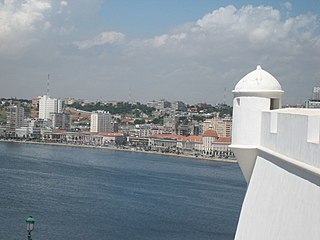
United Nations Security Council resolution 804, adopted unanimously on 29 January 1993, after reaffirming resolutions 696 (1991), 747 (1992), 785 (1992) and 793 (1992), and expressing its concern at lack of implementation of the "Acordos de Paz para Angola" in Angola, the council approved a recommendation by the Secretary-General Boutros Boutros-Ghali to extend the mandate of the United Nations Angola Verification Mission II for a further three months until 30 April 1993.

United Nations Security Council resolution 823, adopted unanimously on 30 April 1993, after reaffirming resolutions 696 (1991), 747 (1992), 785 (1992), 793 (1992), 804 (1993) and 811 (1993), the Council expressed support for the ongoing peace talks in Abidjan between the Government of Angola and UNITA under United Nations auspices and decided to extend the mandate of the United Nations Angola Verification Mission II until 31 May 1993.

United Nations Security Council resolution 834, adopted unanimously on 1 June 1993, after reaffirming resolutions 696 (1991), 747 (1992), 785 (1992), 793 (1992), 804 (1993), 811 (1993) and 823 (1993), the council indicated its concern at the deteriorating political, military and humanitarian situation in Angola and extended the mandate of the United Nations Angola Verification Mission II for a period of 45 days ending 15 July 1993.
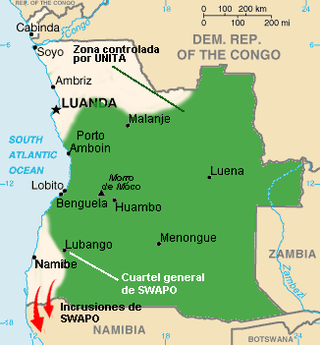
United Nations Security Council resolution 851, adopted unanimously on 15 July 1993, after reaffirming resolutions 696 (1991), 747 (1992), 785 (1992), 793 (1992), 804 (1993), 811 (1993), 823 (1993) and 834 (1993), the Council noted the continuing deterioration of the situation in Angola and extended the mandate of the United Nations Angola Verification Mission II until 15 September 1993, discussing further the peace process in the country.

United Nations Security Council resolution 922, adopted unanimously on 31 May 1994, after reaffirming Resolution 696 (1991) and all subsequent resolutions on Angola, the council discussed the peace process during the civil war and extended the mandate of the United Nations Angola Verification Mission II until 30 June 1994.
United Nations Security Council resolution 932, adopted unanimously on 30 June 1994, after reaffirming Resolution 696 (1991) and all subsequent resolutions on Angola, the council discussed the situation during the civil war and extended the mandate of the United Nations Angola Verification Mission II until 30 September 1994.

United Nations Security Council resolution 945, adopted unanimously on 29 September 1994, after reaffirming Resolution 696 (1991) and all subsequent resolutions on Angola, the Council extended the mandate of the United Nations Angola Verification Mission II until 31 October 1994 and discussed the implementation of peace agreements.
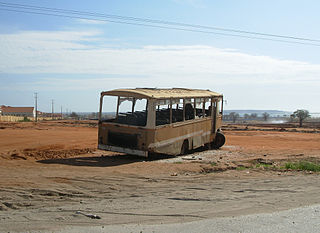
United Nations Security Council resolution 952, adopted unanimously on 27 October 1994, after reaffirming Resolution 696 (1991) and all subsequent resolutions on Angola, the Council discussed the implementation of a ceasefire in the country and extended the mandate of the United Nations Angola Verification Mission II until 8 December 1994.
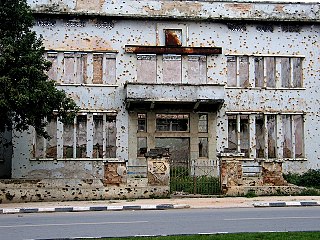
United Nations Security Council resolution 966, adopted unanimously on 8 December 1994, after reaffirming resolutions 696 (1991), 868 (1993) and all resolutions on Angola, the Council discussed the monitoring of a ceasefire in the country and extended the mandate of the United Nations Angola Verification Mission II until 8 February 1995.

United Nations Security Council resolution 976, adopted unanimously on 8 February 1995, after reaffirming resolutions 696 (1991) and all subsequent resolutions on Angola, the Council authorised the establishment of a new peacekeeping mission in the country, the United Nations Angola Verification Mission III with an initial mandate ending on 8 August 1995.

United Nations Security Council resolution 1008, adopted unanimously on 7 August 1995, after reaffirming Resolution 696 (1991) and all subsequent resolutions on Angola, the Council discussed the monitoring of a ceasefire and implementation of peace accords, and extended the mandate of the United Nations Angola Verification Mission III until 8 February 1996.

United Nations Security Council resolution 1045, adopted unanimously on 8 February 1996, after reaffirming Resolution 696 (1991) and all subsequent resolutions on Angola, the Council discussed the implementation of the Lusaka Protocol, and extended the mandate of the United Nations Angola Verification Mission III until 8 May 1996.

United Nations Security Council resolution 1055, adopted unanimously on 8 May 1996, after reaffirming Resolution 696 (1991) and all subsequent resolutions on Angola, the Council discussed the peace process, and extended the mandate of the United Nations Angola Verification Mission III until 11 July 1996.

United Nations Security Council resolution 1064, adopted unanimously on 11 July 1996, after reaffirming Resolution 696 (1991) and all subsequent resolutions on Angola, the Council discussed the peace process, and extended the mandate of the United Nations Angola Verification Mission III until 11 October 1996.

United Nations Security Council resolution 1087, adopted unanimously on 11 December 1996, after reaffirming Resolution 696 (1991) and all subsequent resolutions on Angola, extended the mandate of the United Nations Angola Verification Mission III until 28 February 1997.
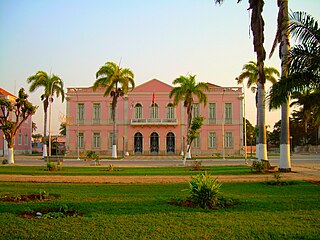
United Nations Security Council resolution 1106, adopted unanimously on 16 April 1997, after reaffirming Resolution 696 (1991) and all subsequent resolutions on Angola, the Council welcomed the establishment of the Government of Unity and National Reconciliation (GURN) and extended the mandate of the United Nations Angola Verification Mission III until 30 June 1997.
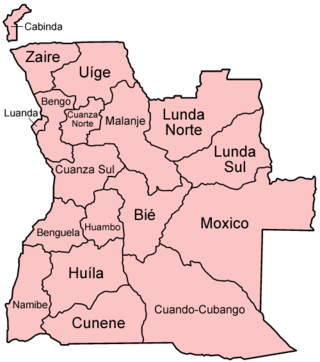
United Nations Security Council resolution 1118, adopted unanimously on 30 June 1997, after reaffirming Resolution 696 (1991) and all subsequent resolutions on Angola, the council established the United Nations Observer Mission in Angola (MONUA) to supersede the United Nations Angola Verification Mission III.
















